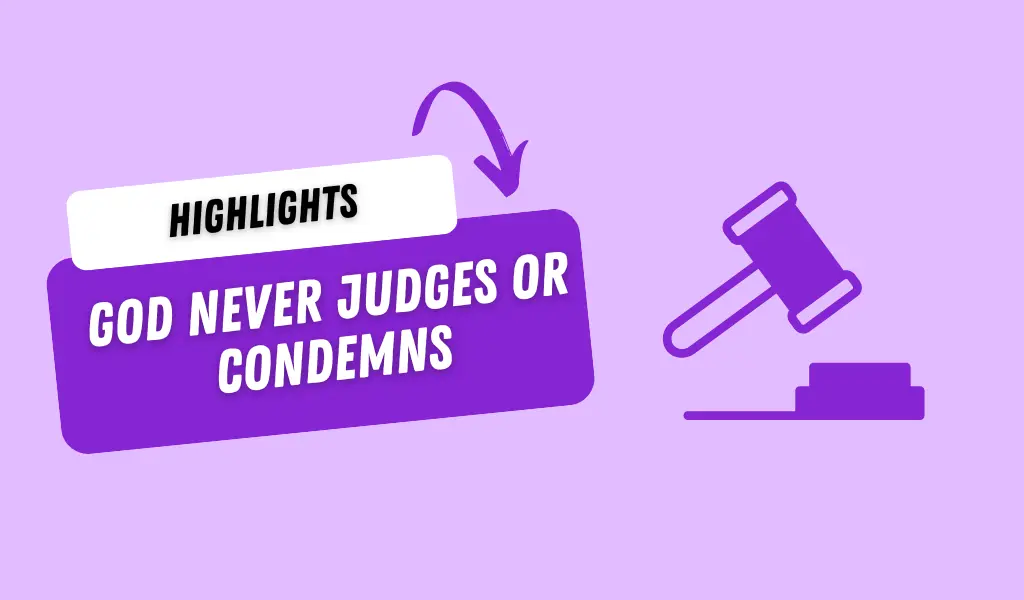Fifth Week of Lent
18th March 2024 (Monday)
Psalter: Week 1
Reading of the Day
First Reading: Daniel 13:1-9, 15-17, 19-30, 33-62
In those days: There was a man living in Babylon whose name was Joakim. And he took a wife named Susanna daughter of Hilkiah, a very beautiful woman and one who feared the Lord. Her parents were righteous and had taught their daughter according to the law of Moses. Joakim was very rich and had a spacious garden adjoining his house; and the Jews used to come to him because he was the most honoured of them all. In that year two elders from the people were appointed as judges. Concerning them the Lord had said: “Iniquity came forth from Babylon, from elders who were judges, who were supposed to govern the people.” These men were frequently at Joakim’s house, and all who had lawsuits came to them. When the people departed at noon, Susanna would go into her husband’s garden to walk. The two elders used to see her every day, going in and walking about, and they began to desire her. And they perverted their minds and turned away their eyes from looking to heaven or remembering righteous judgments. Once, while they were watching for an opportune day, she went in as before with only two maids and wished to bathe in the garden, for it was very hot. And no one was there except the two elders, who had hid themselves and were watching her. She said to her maids, “Bring me oil and ointments and shut the garden doors so that I may bathe.” When the maids had gone out, the two elders rose and ran to her and said: “Look, the garden doors are shut, no one sees us, and we lust for you; so give your consent and be with us. If you refuse, we will testify against you that a young man was with you, and this was why you sent your maids away from you.” Susanna sighed deeply and said, “I am hemmed in on every side. For if I do this thing, it is death for me; and if I do not, I shall not escape your hands. I choose not to do it and to fall into your hands, rather than to sin in the sight of the Lord.” Then Susanna cried out with a loud voice, and the two elders shouted against her. And one of them ran and opened the garden doors. When the household servants heard the shouting in the garden, they rushed in at the side door to see what had happened to her. And when the elders told their tale, the servants were greatly ashamed, for nothing like this had ever been said about Susanna. The next day, when the people gathered to her husband Joakim, the two elders came, full of their wicked plot to have Susanna put to death. They said before the people, “Send for Susanna daughter of Hilkiah, who is the wife of Joakim.” So they sent for her. And she came, with her parents, her children, and all her kindred. But her family and friends and all who saw her wept. Then the two elders stood up in the midst of the people and laid their hands upon her head. And she, weeping, looked up toward heaven, for her heart trusted in the Lord. The elders said, “As we were walking in the garden alone, this woman came in with two maids, shut the garden doors, and dismissed the maids. Then a young man, who had been hidden, came to her and lay with her. We were in a corner of the garden, and when we saw this wickedness we ran to them. We saw them embracing, but we could not hold the man, for he was too strong for us, and he opened the doors and dashed out. So we seized this woman and asked her who the young man was, but she would not tell us. These things we testify.” The assembly believed them, because they were elders of the people and judges; and they condemned her to death. Then Susanna cried out with a loud voice and said, “O eternal God, who does discern what is secret, who is aware of all things before they come to be, you know that these men have borne false witness against me. And now I am to die! Yet I have done none of the things that they have wickedly invented against me!” The Lord heard her cry. And as she was being led away to be put to death, God aroused the holy spirit of a young lad named Daniel; and he cried with a loud voice, “I am innocent of the blood of this woman.” All the people turned to him and said, “What is this that you have said?” Taking his stand in the midst of them, he said, “Are you such fools, you sons of Israel? Have you condemned a daughter of Israel without examination and without learning the facts? Return to the place of judgment. For these men have borne false witness against her.” Then all the people returned in haste. And the elders said to him, “Come, sit among us and inform us, for God has given you that right.” And Daniel said to them, “Separate them far from each other, and I will examine them.” When they were separated from each other, he summoned one of them and said to him, “You old relic of wicked days, your sins have now come home, which you have committed in the past, pronouncing unjust judgments, condemning the innocent, and letting the guilty go free, though the Lord said, ‘Do not put to death an innocent and righteous person.’ Now then, if you really saw her, tell me this: Under what tree did you see them being intimate with each other?” He answered, “Under a mastic tree.” And Daniel said, “Very well! You have lied against your own head, for the angel of God has received the sentence from God and will immediately cut you in two.” Then he put him aside and commanded them to bring the other. And he said to him, “You offspring of Canaan and not of Judah, beauty has deceived you and lust has perverted your heart. This is how you both have been dealing with the daughters of Israel, and they were intimate with you through fear; but a daughter of Judah would not endure your wickedness. Now then, tell me: Under what tree did you catch them being intimate with each other?” He answered, “Under an evergreen oak.” And Daniel said to him, “Very well! You also have lied against your own head, for the angel of God is waiting with his sword to saw you to two, that he may destroy you both.” Then all the assembly shouted loudly and blessed God, who saves those who hope in him. And they rose against the two elders, for out of their own mouths Daniel had convicted them of bearing false witness; and they did to them as they had wickedly planned to do to their neighbour; acting in accordance with the law of Moses, they put them to death. Thus innocent blood was saved that day.
Psalm 23:1-3a, 3b-4, 5, 6 (R. 4ab)
R/. Though I should walk in the valley of the shadow of death, no evil would I fear, for you are with me.
Verse Before The Gospel
V/. Glory and praise to you, O Christ
R/. Glory and praise to you, O Christ
V/. I have no pleasure in the death of the wicked, says the Lord, but that the wicked turn from his way and live.
R/. Glory and praise to you, O Christ.
Gospel : John 8:1-11
At that time: Jesus went to the Mount of Olives. Early in the morning he came again to the temple. All the people came to him, and he sat down and taught them. The scribes and the Pharisees brought a woman who had been caught in adultery, and placing her in the midst they said to him, “Teacher, this woman has been caught in the act of adultery. Now in the Law, Moses commanded us to stone such women. So what do you say?” This they said to test him, that they might have some charge to bring against him. Jesus bent down and wrote with his finger on the ground. And as they continued to ask him, he stood up and said to them, “Let him who is without sin among you be the first to throw a stone at her.” And once more he bent down and wrote on the ground. But when they heard it, they went away one by one, beginning with the older ones, and Jesus was left alone with the woman standing before him. Jesus stood up and said to her, “Woman, where are they? Has no one condemned you?” She said, “No one, Lord.” And Jesus said, “Neither do I condemn you; go, and from now on sin no more.”
Daily Gospel Reflection
Highlight: God never judges or condemns
Guidelines: There is a mountain of difference between God’s way of acting and human’s. God never judges or condemns but humans are so eager to do so
1. One grievous malaise of our society is the spirit of judgment, accusation, and condemnation. Many are so eager to judge, accuse and condemn others so unjustly, uncharitably, and disproportionately. A sense of righteousness and morality is good and needed. Certainly, we cannot take lightly the wrongs or justify them. A permissive tendency to allow and even glorify the immoral is another extreme.
2. But the whole problem is a spirit of double standards, one for oneself and the other for others. People become so lenient and indulgent towards their own wrongs but so exacting and condemning towards others. They rashly and severely condemn others but conveniently and hypocritically condone themselves. They label others as sinners while they project themselves as saints.
3. The people of Jesus’ time especially the Pharisees and scribes were this type. They impose and apply rigid laws over others but are evasive toward themselves. They catch a woman in adultery and present her to Jesus to sentence her to death by stoning as per the law. Their intention was very clear. It was not because they wanted Jesus’ judgment but rather to trap him.
4. The law is very clear and if Jesus adheres to it, then they can question his clamour for mercy. How can he preach so much about mercy and compassion but say, stone her to death? But if he says, let her not be punished but be left free, then they can blame him for defying the law. How can he breach the law but claim himself to be a religious man which is essentially law-abiding? In either case, Jesus will be caught on the wrong foot.
5. Jesus states “Let the one who has no sin throw the first stone”. What divine wisdom! What a condescending mercy of God! The point here is not permissibility toward sin. Jesus in no way shields sin or dilutes its gravity. If it were so, Jesus would not directly ask the adulterous woman, “sin no more”. He does not tell the people, It is okay, leave her; he does not also directly defend her, questioning, who does not have sin.
6. He directly appeals to their inner conscience. He urges them to self-focus and self-discovery. He confronts their mentality of double standards. He puts them in the face with their own sinfulness and thus their own culpability. They are so eager to punish the woman. But what about themselves? Do they not look at themselves? Do they not think of their own sin that deserves similar punition?
7. Jesus brings to light forcefully the unconditioned mercy of God that goes beyond measures. He is a God who does not count the quantity of our wrongdoing. Sin may abound but His mercy superabounds. He is a God who promises through the prophet Isaiah 43. 16-21: Behold, I am doing a new thing; I will make a way and give water in the wilderness, rivers in the desert to give drink to my chosen people.
8. God is offering the bounty of His mercy and invites us not to sin anymore from now on. So what does this imply? As God says through the prophet: Remember not the former things, nor consider the things of old. Do not be weighed down by the faulty past. Start anew.
Practice: Let us surge ahead with the power of God’s forgiveness to live a renewed life







